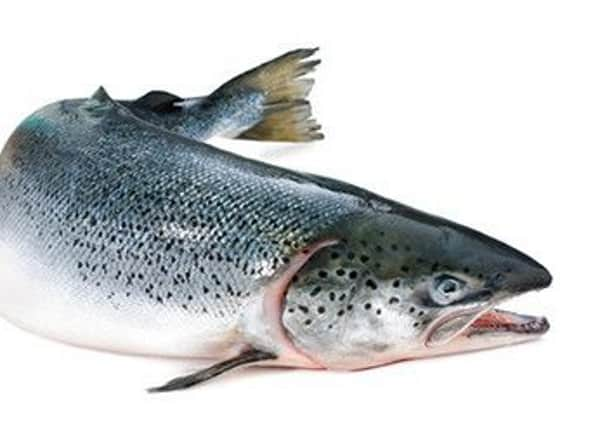Plea to keep communication lines open over fish disease


Paul Hopper says that despite it being common knowledge the disease was claiming ‘substantial numbers’ of farmed salmon and it had taken some time before fish farmers contacted the OHFT.
“It is unfortunate this has happened, Marine Harvest fulfilled their obligations in notifying the fish health inspectorate in Aberdeen but we would have liked to have been notified at the same time,” he told the Gazette.
Advertisement
Hide AdAdvertisement
Hide Ad“After a couple of months of very little communication we have had meetings with their managers and they have said they are working to fix the problem. The main thing for us was not having the information but knowing there has been a problem.”
A spokesperson for Marine Harvest has confirmed the presence of AGD, but they insist they are hopeful of an improvement as water temperatures begin to drop, which they believe should see the fish begin to clear of the disease.
They said: “To combat AGD we’re using freshwater as a treatment.
“We can bathe the salmon in freshwater for a period of time and this helps improve the condition of the fishes’ gills. We have a number of good fresh water supplies but we are always looking for more.
Advertisement
Hide AdAdvertisement
Hide Ad“Recently we have taken delivery of a new well boat with a desalination unit and this will also help provide freshwater on the seawater farms.”
The problem has affected fish in a number of farming sites around Lewis but the main site affected has been West Loch Tarbert and Paul Hopper admits it is difficult to gauge whether it has spread to wild fish.
“It has been a huge problem and a substantial amount of fish have been affected,” he said.
“We are in a situation now where time will tell. They have promised they will work on it and if they get back on top of things they will still have fish in the loch to take to harvest, before they go into a fallow period, with nothing on site before they re-stock.
Advertisement
Hide AdAdvertisement
Hide Ad“The diseases are transferable, as is the sea lice, and the fish farmers can quantify the problem by lifting the nets to see if they have X amount of dead fish in there.
“But the wild fish would just die at sea so we have no idea how many are lost as we don’t see them. The only gauge we have is what fishermen catch on the rod.
“There hasn’t been a steep decline with salmon but again it is a time will tell scenario and it is concerning.”
Innes Morrison of the Western Isles Fishery Board added: “It is a major concern that this disease and sea lice have been around a long time and yet fish farms still can’t control it.
“But our main worry is when the council grant them planning permission to extend all the time despite the farms not being able to control and look after what they already have.”